Robert “Rosie” Rosenthal flew 52 missions as an American bomber pilot and survived being shot down twice during World War II. Then, he used his law degree to prosecute Nazis at Nuremberg.
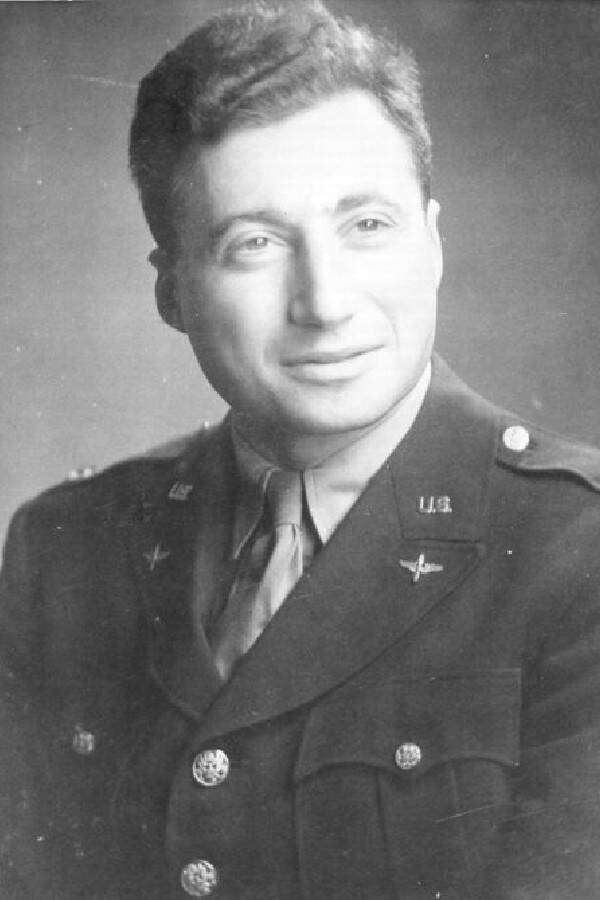
Public DomainRobert Rosenthal fought the Nazis as a pilot, then prosecuted them as a lawyer at the Nuremberg Trials.
Robert Rosenthal had just started his first job as a lawyer when he heard that the Japanese had bombed Pearl Harbor. The next day, the 25-year-old quit his law firm. He promptly enlisted with the Army Air Corps.
“I couldn’t wait to get over there,” he later said.
Sent to Europe, Rosenthal would defy death again and again. He flew 52 bombing missions, survived getting shot down twice, and was awarded 16 decorations. But Rosenthal didn’t stop there. When the war in Europe ended, he volunteered to fight in the Pacific. And when the Japanese surrendered, Rosenthal decided to use his law degree to prosecute Nazis at Nuremberg.
Only then, when “justice had overtaken evil,” did Rosenthal return to civilian life. His story, and the story of others who served in the 100th Bomb Group, will be told in the Apple TV+ miniseries Masters of the Air (2024).
From Brooklyn To The Battlefield
Born in Brooklyn on June 11, 1917, Robert “Rosie” Rosenthal never planned on becoming a pilot. He studied at Brooklyn College, then Brooklyn Law School, and started working as a lawyer after graduating in 1941.
But all the while, Rosenthal kept an eye on what was going on in Europe. World War II had broken out in September 1939 with the Nazi invasion of Poland and Rosenthal saw Adolf Hitler as a danger to the world.
“I had read Mein Kampf in college and had seen the newsreels of the big Nazi rallies in Nuremberg,” Rosenthal later told Donald L. Miller, who wrote about Rosenthal and the 100th Bomb Group in his 2006 book Masters of the Air: America’s Bomber Boys Who Fought the Air War Against Nazi Germany. “The entire nation had gone mad. It had to be stopped.”
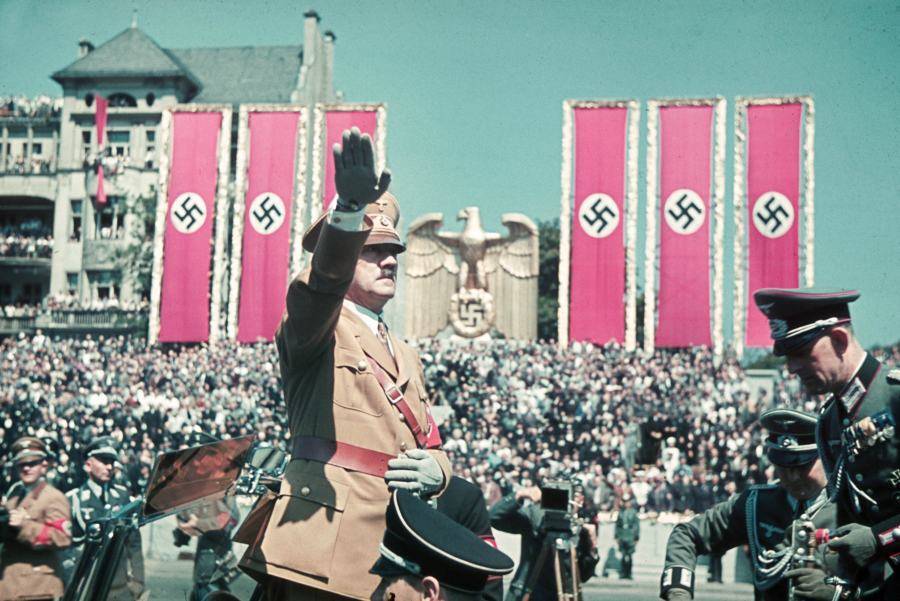
Hugo Jaeger/Timepix/The LIFE Picture Collection/Getty ImagesAdolf Hitler saluting before a large crowd. June 1939.
Rosenthal was Jewish, but his animosity toward the Nazis wasn’t personal. Hitler, he told Miller, “was a menace to decent people everywhere.”
The United States was still neutral by the time Rosenthal graduated law school. But that changed on Dec. 7, 1941 when the Japanese launched a surprise attack on Pearl Harbor. Rosenthal, who had just started his career as a lawyer in Manhattan, decided to enlist with the Army Air Corps right away.
Though The New York Times reports that Rosenthal was offered noncombat duties, he insisted on fighting. And before long, he was sent to Europe to fly combat missions with the 100th Bomb Group.
“When I finally arrived, I thought I was at the center of the world,” Rosenthal recalled to Miller, “the place where democracies were gathering to defeat the Nazis. I was right where I wanted to be.”
Robert Rosenthal, The Pilot Who ‘Couldn’t Get Killed’
In Europe, Robert Rosenthal was assigned to the 100th Bomb Group, which would come to be known as the “The Bloody Hundredth” for the heavy losses it suffered in June-October 1943. Rosenthal would serve alongside several other airmen featured in Miller’s book, including Major Gale Cleven, Major John Egan, and Major Harry Crosby.
And it wasn’t long before he saw action.
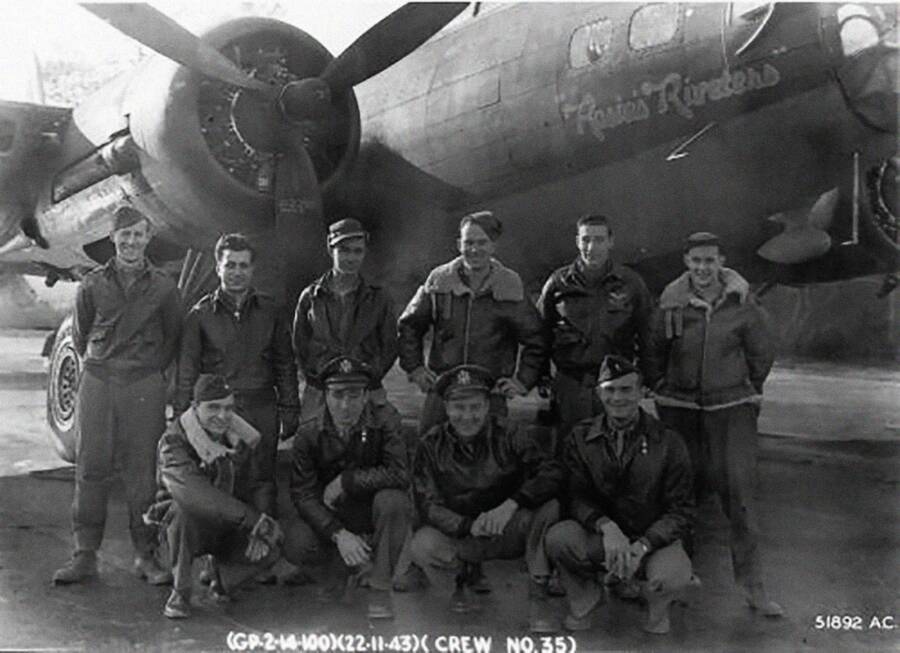
100th Photo ArchivesRobert Rosenthal (kneeling, second from left) and his crew.
As The New York Times reports, Rosenthal was on his third bombing mission when he and the 12 planes in his group were attacked by about 200 German pilots. Within seconds, they were engaged in what one air commander called “the single most vicious air battle of that war, or of all time.”
As the German planes decimated their ranks, Rosenthal executed a number of evasive maneuvers to break free.
“In a situation like that you don’t think about dying,” he later recalled of the battle to Miller. “You focus on what you have to do to save the plane and crew… You’re frightened, but there’s a difference between fear and panic. Panic paralyzes; fear energizes… Truthfully, the only fear I ever experienced in the war was fear that I would let my crew down.”
On that day, Rosenthal didn’t. He and his men managed to get back to base. But of the 13 planes on the mission, they were the only ones to make it back.
“I didn’t feel relieved,” Rosenthal said. “I felt guilty. Why had I lived when all those other good men died?”
In fact, Robert Rosenthal would have several more brushes with death. In the 52 missions he flew, he was shot down twice. The first time, he broke his arm and nose. The second time, he fractured the same arm, and was rescued by suspicious Soviet soldiers who thought he was a German until Rosenthal shouted: “Americanski! Coca-Cola! Lucky Strike! Roosevelt, Churchill, Stalin!”
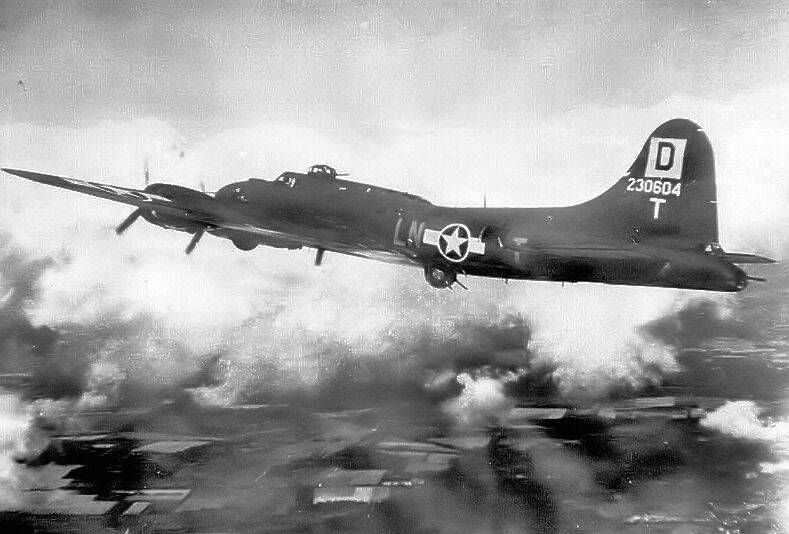
United States Army Air ForceRosenthal flew a B-17 like this one, which also belonged to the 100th Bomb Group.
Afterward, he incredibly asked to be sent back to the skies to keep fighting — cementing the “Rosenthal legend.” As one of his fellow soldiers said, this legend was “made up of the following ingredients: that [Rosenthal] could have stopped flying and that he couldn’t get killed.”
Indeed, even as the war came to an end in Europe, Rosenthal agitated to be sent to fight in the Pacific. The New York Times reports that he was training to fly B-29s in Florida when Japan surrendered on Sept. 2, 1945, almost six years to the day that the Nazis invaded Poland.
With that, World War II was over. Rosenthal had emerged from the conflict as a hero, with 16 decorations, including the Distinguished Service Cross for “extraordinary heroism.” But “Rosie” Rosenthal wasn’t done fighting Nazis.
How Robert Rosenthal Prosecuted Nazis At Nuremberg
After the war, Robert Rosenthal briefly returned to his Manhattan law firm. But when an opportunity arose for him to join the Nuremberg Trials back in Germany, he leapt at the opportunity to prosecute Nazis.
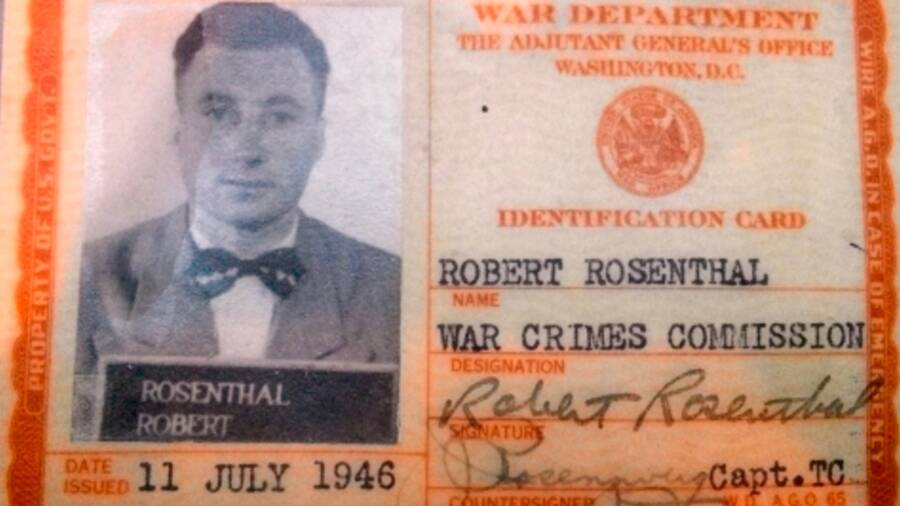
100th Photo ArchivesRobert Rosenthal’s ID card during the Nuremberg Trials.
Rosenthal interrogated major Nazi figures like Hermann Göring, commander of the German air force, and Wilhelm Keitel, a top German general. For him, it was greatly satisfying to see men like these brought to justice.
“Seeing these strutting conquerors after they were sentenced — powerless, pathetic and preparing for the hangman — was the closure I needed,” he told Miller. “Justice had overtaken evil. My war was over.”
And with that, Rosenthal settled into civilian life. He married — he met his wife, a fellow lawyer, en route to Nuremberg — and had children, grandchildren, and great-grandchildren. He died in 2007 at the age of 89.
But now Robert Rosenthal’s story will get new life. The upcoming Apple TV+ miniseries, Masters of the Air, will tell his story and the stories of other airmen in the 100th Bomb Group, including Major Gale Cleven, Major John Egan, and Major Harry Crosby, who had nothing but good things to say about “Rosie.”
Cleven and Egan, Crosby said, according to Miller’s book, “gave the 100th its personality. Bob Rosenthal helped us want to win the war.”
After reading about the incredible life of World War II pilot Robert Rosenthal, discover the real story of Easy Company just hinted at in the HBO series ‘Band of Brothers.’ Or, look through these colorized photos that bring World War II to life.





